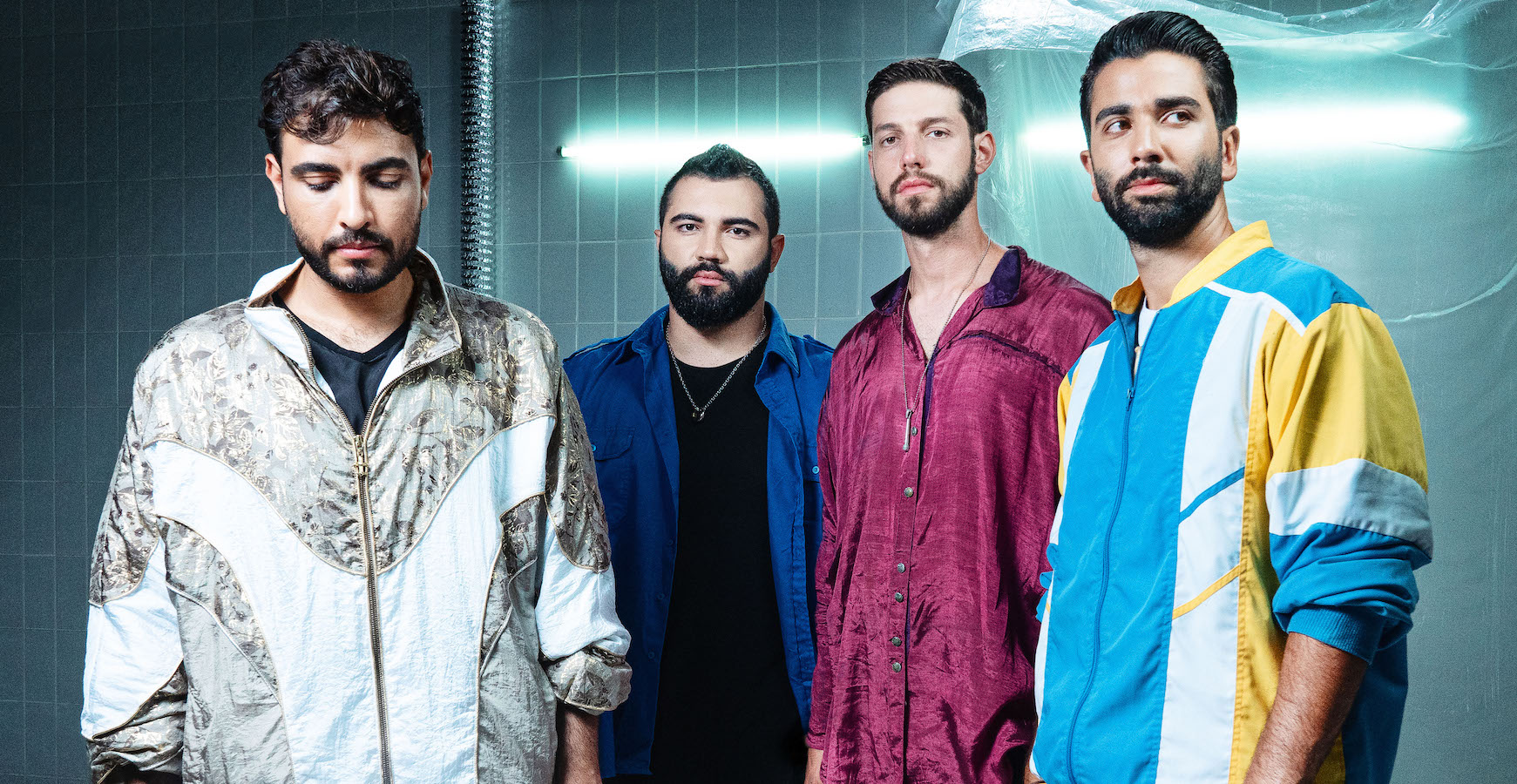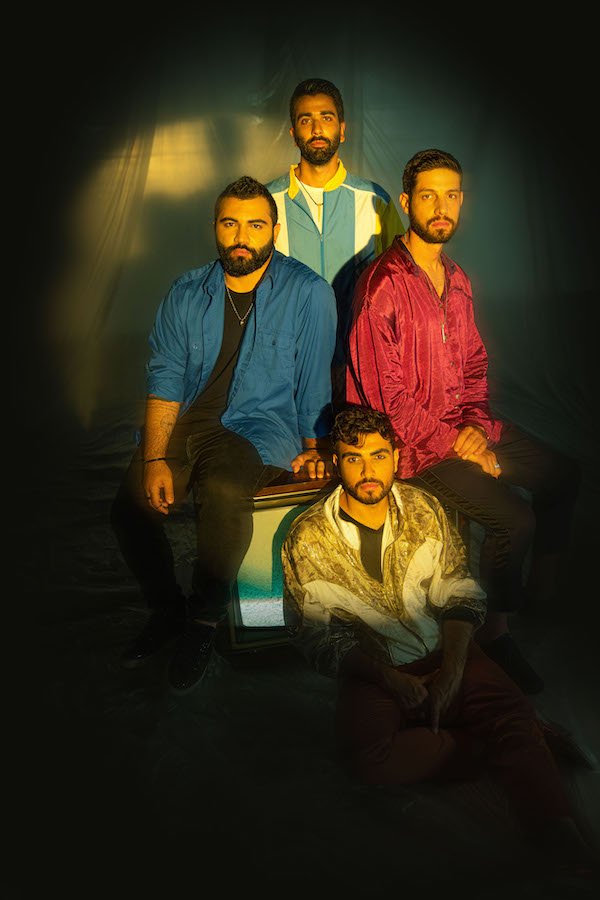AMSDERTAM: Lebanese indie-pop band Adonis will celebrate their 10th anniversary later this year. A decade together is some achievement for any group, let alone an independent one based out of the Middle East playing Arabic-language music that, while it’s an easily accessible mix of melancholia and optimism, isn’t mainstream radio pop.
As remarkable as the band’s longevity is the fact that three of the four original members are still there: Singer and keyboardist Anthony Khoury, guitarist Joey Abou Jawdeh, and drummer Nicola Hakim. Bassist Gio Fikany joined after Khoury’s brother quit to — as Khoury puts it — “move to Switzerland to live a decent and orderly life.” Just how unusual it is to have such a stable lineup is something they only realized “when we started hanging out with other bands in the region.”
It undoubtedly helps that they were all friends before they started the band. “We used to get together and jam, so we were playing music together anyway,” Khoury says. After a few months of knocking out covers of Arabic songs they liked — including work by seminal Lebanese indie duo Soapkills, alongside “Lebanese classics” such as Fayrouz and Ziad Rahbani — Khoury brought in some ideas for original songs. “I liked to write, and I was comfortable enough with these guys to share the stuff. I wouldn’t have been confident enough if we weren’t friends, though,” he says.
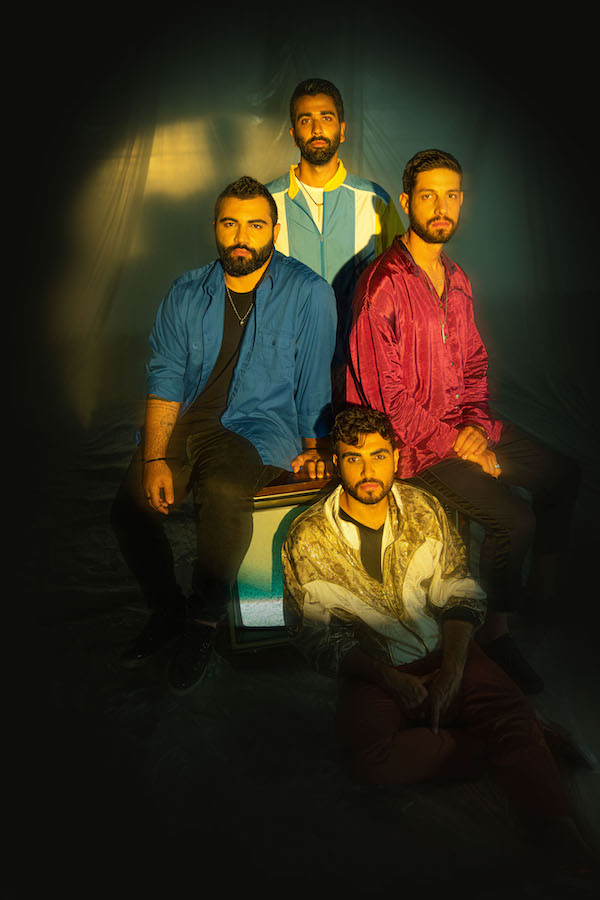
This was how Adonis’ relatively unusual way of composing their songs began too — a method they still use to this day. Most bands will base a song around a melody, or an instrumental hook, or chord pattern. Adonis, however, start with the words.
“I think it kind of sets us apart,” says Khoury. “When you start with lyrics, you have immediate limitations on the melody, because you already have a structure in the lyrics. So you’re going to end up with songs that don’t sound like a lot of other things around. Melody is more abstract — there’s a chance this melody you thought you came up with, you’ve actually heard before somewhere. But when you put lyrics on paper, you’re going to be conscious if it sounds like another song. I think starting with lyrics allows songs to be more original.”
Adonis’ early work had the then-ubiquitous acoustic, indie-folk feel reminiscent of bands like Fleet Foxes. But their third album, 2017’s “Nour,” saw a significant shift. This was partly down to Jean-Marie Riachi, an award-winning producer known for his work with leading mainstream Arab pop artists including Elissa and Haifa Wehbe. It was an unusual and bold choice for Adonis to work with him, and one that again highlighted their knack for the unconventional.
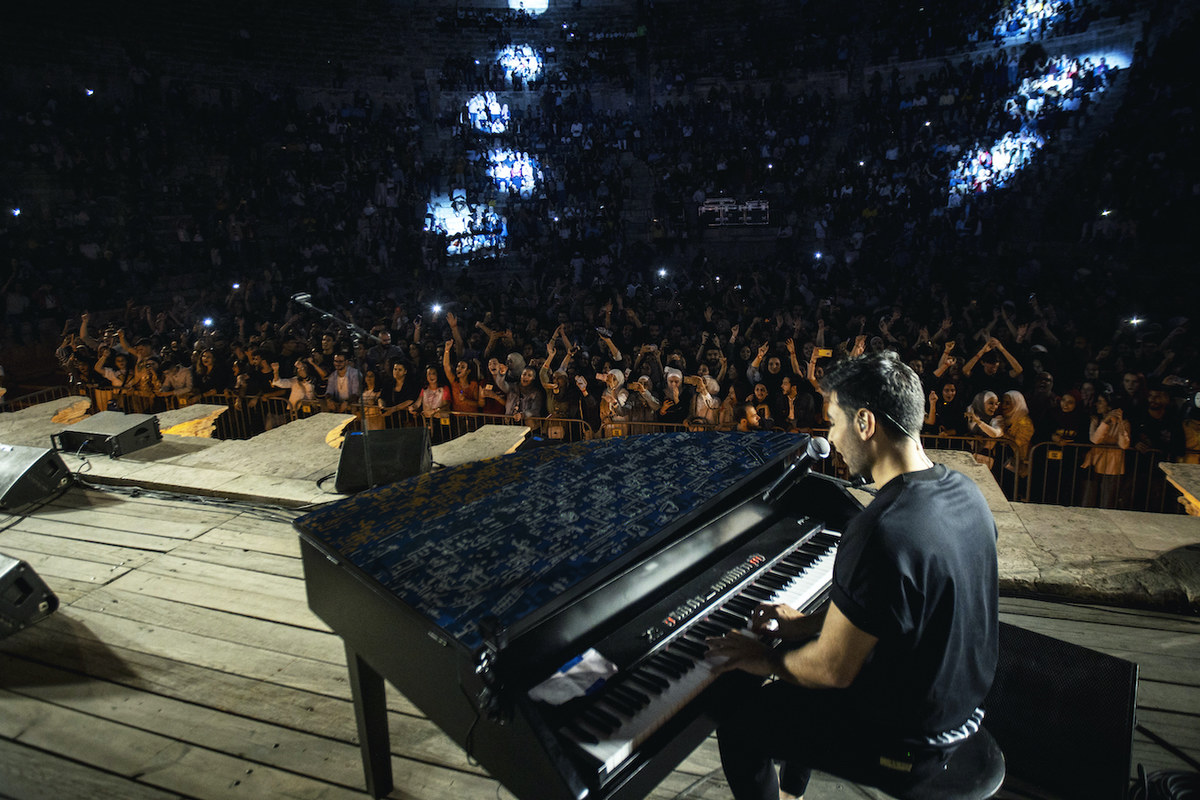
“Jean-Marie was, like, ‘I like your songs. But since you’re going for ear-pleasing melodies and lyrics and you know how to write choruses really well, why not try to change the angle a bit? Try to see if you can reach a larger audience if we polish your sound?’” says Khoury. “He knew where he wanted to go with it, but he also knew he was working with a band who write their own songs — which isn’t often the case in the Middle East. So he respected that. We did have some creative clashes, but I think the best work always comes out of creative clashes, rather than someone always agreeing with everything you’re saying; or someone always imposing their ways on you.”
The shift in sound may have lost them some fans in the alternative music community, Khoury admits, but it also gained them many more, and the frontman has no regrets. “There was some snobbery from the independent scene in Lebanon, but at a certain point, when your audience is growing and you’re getting booked at festivals you always wanted to play, and you’re getting the recognition you’d always dreamed of but never thought possible, you don’t really care if a certain group of people consider you a sell-out, because you’re doing something that you like and it’s paying off,” he says.
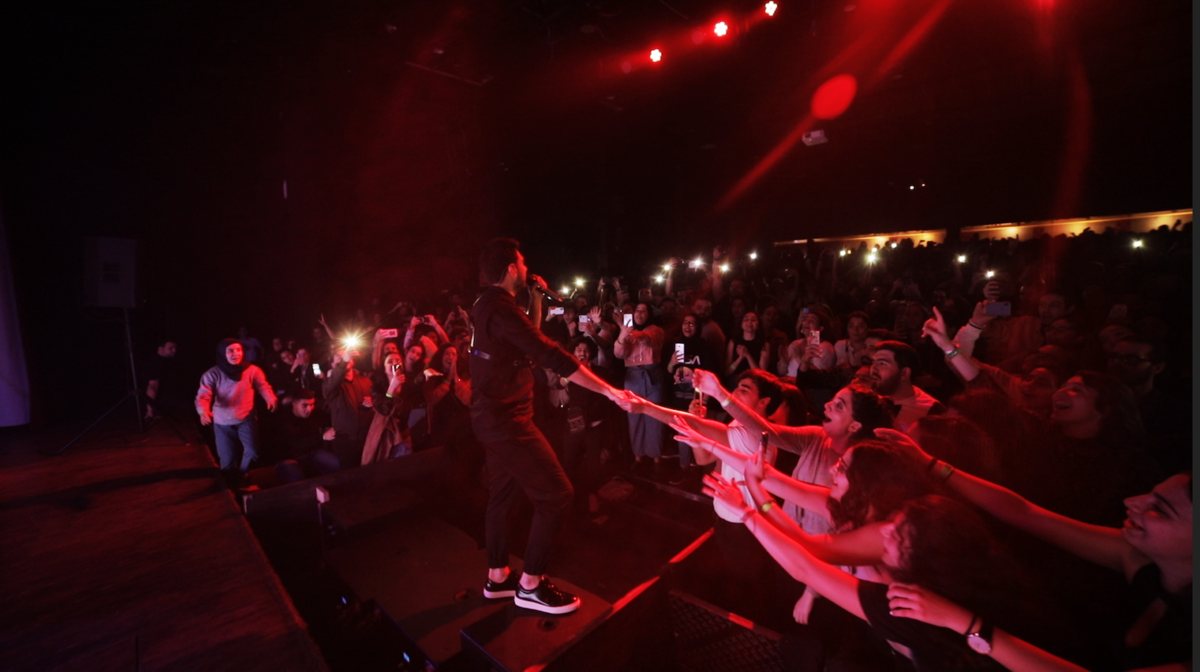
Besides, he adds, the sonic shift wasn’t all that dramatic, and certainly didn’t affect the songwriting. “If I were to play you a song of ours on the piano or on the guitar, you wouldn’t know if it’s from 2010 or 2020,” Khoury says. “You could still hear the guitar riffs and the drums and everything (on ‘Nour’), but there was an additional layer, so it was a balance. And we’ve kept that sound ever since — less indie-folk and more indie-pop — even with different producers.”
That’s true of their fifth studio album “A’da” (Enemies). It’s a concept album, released in three parts over recent weeks — each themed, Khoury explains.
“The album is a love story between the same two characters from beginning to end, written in three big chapters. The first part, ‘Innocence,’ is when the two young characters are getting to know each other, and feeling emotions for the first time. The second explores love at more mature levels, when you have more life experience, and you settle down and achieve what you conceive to be a happy life,” he says. “The third part, ‘Nostalgia,’ is about how, no matter how happy you are, there’s always something that drags you back to that first kiss, your first night together, and the first time you felt all these real emotions — love, hate, attachment, and so on.”

The two fictional characters are anonymous, Khoury explains. “That’s on purpose. We didn’t want to give them labels. They could be anyone.”
The music — with the aid of producer Sleiman Damien, whom Khoury describes as “a fifth band member” — reflects the story too. “The only guideline we had was that it had to sound, chronologically, more modern over time. So the first track starts really rooted in Western Eighties music: High-school gym-dance kind of music. That’s the era when the two characters meet. Then it becomes more modern. And in the third part you go back a bit again. We wanted the evolution of the sound of the album to also reflect the story of these characters, that’s how we conceived it.”
It’s perhaps surprising to learn that the record was mostly conceived and written in September, just a few weeks after the devastating explosion in Beirut Port which killed and injured so many and wrecked the homes of even more, including Khoury. The band packed up their gear and headed to Batroun on the coast, where they rented a house and finished most of the work on the record.
It was a cathartic experience, but, once again, not in the way you might expect. The band members didn’t pour their anger and frustration into the album. Instead, they allowed it to transport them out of that frustration, at least for a time.
“You’d expect an album written right after that horrible incident to be dark, or very heavy. But actually, we insisted that we were going to stick to writing love songs — finishing off the themes that we had already laid down before the blast. Obviously, you feel the intensity of the year, and of that event, in the sounds and some of the settings of the songs, but it’s still a love album,” Khoury says. “For us, it was a way to disconnect a bit from what had happened, the sleepless nights and everything. And at the same time it was a way for us to say that we aren’t going to let this drag us down.”
